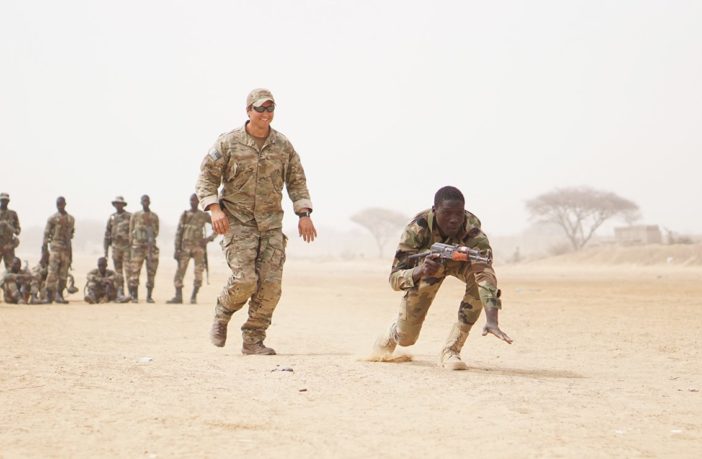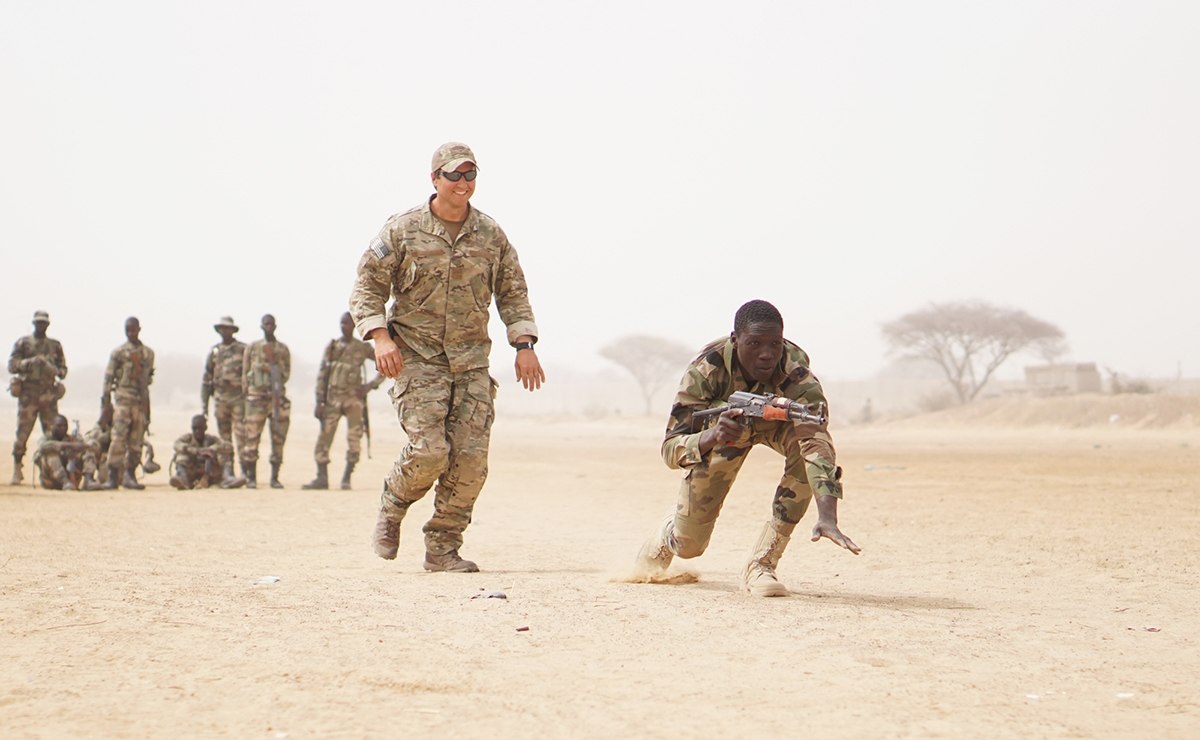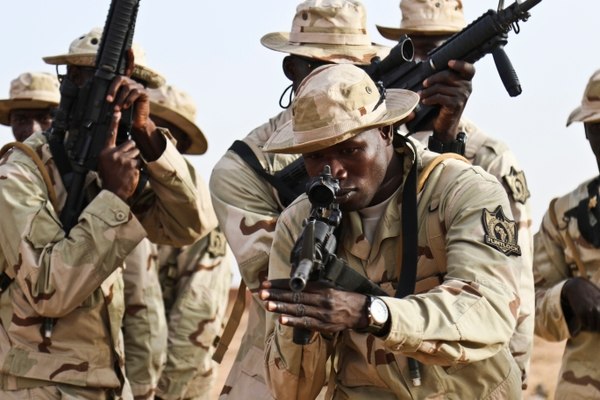Military Times
By: Kyle Rempfer
A U.S. Army Special Forces weapons sergeant observes as a Nigerien soldier bounds forward while practicing buddy team movement drills during Exercise Flintlock 2017 in Diffa, Niger, March 11, 2017. (Spc. Zayid Ballesteros/Army)
U.S. Africa Command is gearing up for its largest annual special operations exercise. But the premier event is taking place primarily in Burkina Faso this year, a country plagued by a deteriorating security situation and alleged human rights violations committed by U.S.-allied forces.
More than 2,000 troops from 34 African and Western partner nations will participate in Flintlock 2019 at multiple locations in Burkina Faso, with an outstation in Mauritania, between Feb. 18 and Mar. 1.
“It’s worth noting that this exercise provides readiness to the U.S. and western SOF militaries, interoperability training, and actual readiness to my own headquarters, for whom this is a major activity,” Air Force Maj. Gen. Mark Hicks, who helms Special Operations Command Africa, said during a telephone conference Wednesday. “We’re trying to focus on those individuals who will actually become watch standers in G5 Sahel headquarters or [Multinational Joint Task Force] headquarters operations.”
That task force is mandated to counter the various Islamic terror groups that have wrought havoc among African Sahel nations.
Flintlock stems from decades-old western SOF training events, Hicks said. But now that European SOF units are well-established, the focus has migrated to the African continent.
“This will be the first year that some of our African partners who’ve been trained by western SOF over the years, will also participate as training cadres,” Hicks said. “So I look forward to seeing Niger and Moroccan SOF trainers as well as trainees in this year’s Flintlock.”
The exercise’s location in Burkina Faso drew questions and concerns during the telephone conference this week.
Terror attacks in the country are on the rise, and its security forces have been accused of extrajudicial killings, burning property and arbitrary detentions as they combat groups like the Islamic State in the Greater Sahara, according to the U.S. State Department.
It’s against the law for U.S. military forces to assist a nations’ armed forces if they are complicit in such abuses.
But the allegations of human rights violations are being pursued by both U.S. and Burkinabe officials, the U.S. ambassador to Burkina Faso said.
“I think it’s important to look at these allegations in light of the environment in which the country is working and the actions that the government of Burkina Faso has taken in the past,” Ambassador Andrew Young said. “For example, there’s one case related to an area called Arbinda, where the government of Burkina Faso launched an investigation for concrete actions, and they took concrete actions to prosecute and to hold accountable human rights violators.”
Senegal Soldiers run through Close Quarters Combat exercises as part of Flintlock 2018 in Tahoua, Niger, April 13, 2018. (Sgt. Heather Doppke/Army)
When American special operations troops assigned to AFRICOM train local forces, they always teach the law of armed conflict and human rights compliance, Maj. Gen. Hicks said.
“It is an absolutely critical element of our training program to ensure that the forces with whom we train and partner conduct themselves according to international human rights law,” he said.
This week, the Chadian military, which will also participant in Flintock 2019, allegedly captured about 250 rebels after French military aircraft strafed the rebels’ convoy formation. The U.S. also provides intelligence and logistical air support for the French military in their counter-terror endeavors in the African Sahel.
However, some worry that this incident was an example of Western countries helping to extinguish rebel groups who pose a threat to local authoritarian regimes, rather than actual Islamic terrorists. In doing so, some worry that the U.S. and its allies are simply supporting dictators who seized power in their own military coups in order to maintain a semblance of stability in the region.
“We are always concerned about the disposition of the forces that we train and partner with,” Hicks said. “That is a constant issue. … Just like any other violations of human rights, we would take any allegations of misuse of our equipment or our training very seriously, and we always do.”
“I think we work very carefully and try very hard to strike a balance with respect to improving the security of both [Multi National Joint Task Force] and G5 [Sahel] nations, vis-à-vis their legitimate security threats — their Salafi jihadist threats,” Hicks added. “But we steer very clear of doing things to support simply the sustainment of a government.”
The U.S. military plans to partner with African Sahel nations for the long haul.
In the past two weeks, the U.S. signed an agreement with Burkina Faso to join the State Partnership Program, Young said. The initiative links U.S. Air and Army National Guard units with allied nations militaries for continual training rotations.
Burkina Faso will partner with the National Guard of the District of Columbia for joint exercises and training opportunities.









